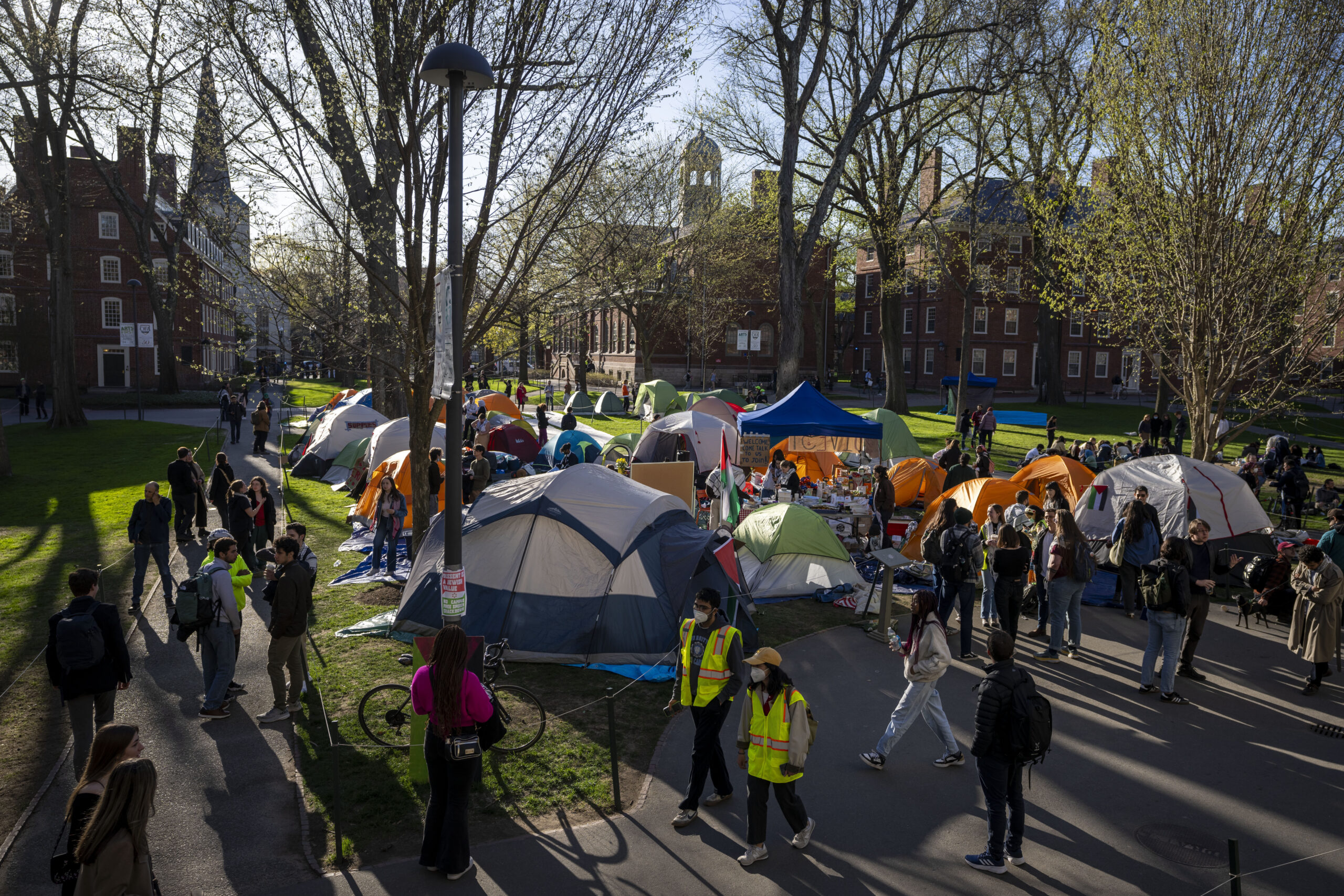

Harvard University came to an agreement with its encamped pro-Palestinian protesters on Tuesday, negotiating the end to the encampment with some concessions to the agitators.
The end to the encampment came as organizers of Harvard Out of Occupied Palestine successfully negotiated the reinstatement of at least 22 students from involuntary leave for their participation. The group also secured a meeting with university governance to discuss financial disclosure and divestment from Israel-related entities.
“Yesterday, the Harvard Out of Occupied Palestine (HOOP) coalition democratically voted to end its encampment after 20 days,” the group, which is not recognized as an organization by Harvard, wrote in a Tuesday morning statement.
“We are under no illusions: we do not not believe these meetings are divestment wins,” HOOP added. “These side-deals are intended to pacify us away from full disclosure & divestment. Rest assured, they will not.”
Harvard is one of a handful of schools across the country that has been able to end the protests without the use of police force, and it is one of even fewer that was able to do so without making heavy capitulations to the protesters’ demands. Other schools that negotiated ends to their encampments included Brown University and Northwestern University, as well as the University of Wisconsin, Milwaukee, which agreed to call for a ceasefire in Gaza.
School spokesman Jonathan Swain said the administration of interim President Alan Garber will encourage schools to process petitions speedily to reinstate students who were placed on involuntary leave related to their involvement in the encampment, according to the Harvard Crimson.
“With the disruption to the educational environment caused by the encampment now abated, I will ask that the Schools promptly initiate applicable reinstatement proceedings for all individuals who have been placed on involuntary leaves of absence,” Garber wrote in an email Tuesday morning.
The school also said it will expedite the cases for over 60 students who have been charged related to their involvement with the encampment. HOOP cited “precedents of leniency for similar actions in the past.”
HOOP members were also granted a meeting with Garber and Hopi E. Hoekstra, dean of the Faculty of Arts and Sciences, to discuss the Israel-Gaza conflict and possibly to begin plans for a center for Palestinian studies.
While students called for divestment, the school said it offered a tutorial to help them understand how the $49.5 billion endowment functioned.
“I will facilitate a meeting with the chair of the Corporation Committee on Shareholder Responsibility and other University officials to address questions about the endowment,” Garber said in the email.
CLICK HERE TO READ MORE FROM THE WASHINGTON EXAMINER
Garber had consistently said that using police to respond to the protesters would require a “high bar,” but he had also signaled that he would not negotiate with the protesters. With commencement coming up next week, a police response was looking more likely prior to the announcement on Tuesday.
As the Washington Examiner reported, commencement ceremonies that happened at other universities on May 11 and 12 saw some disruptions from pro-Palestinian protesters shouting and chanting.






